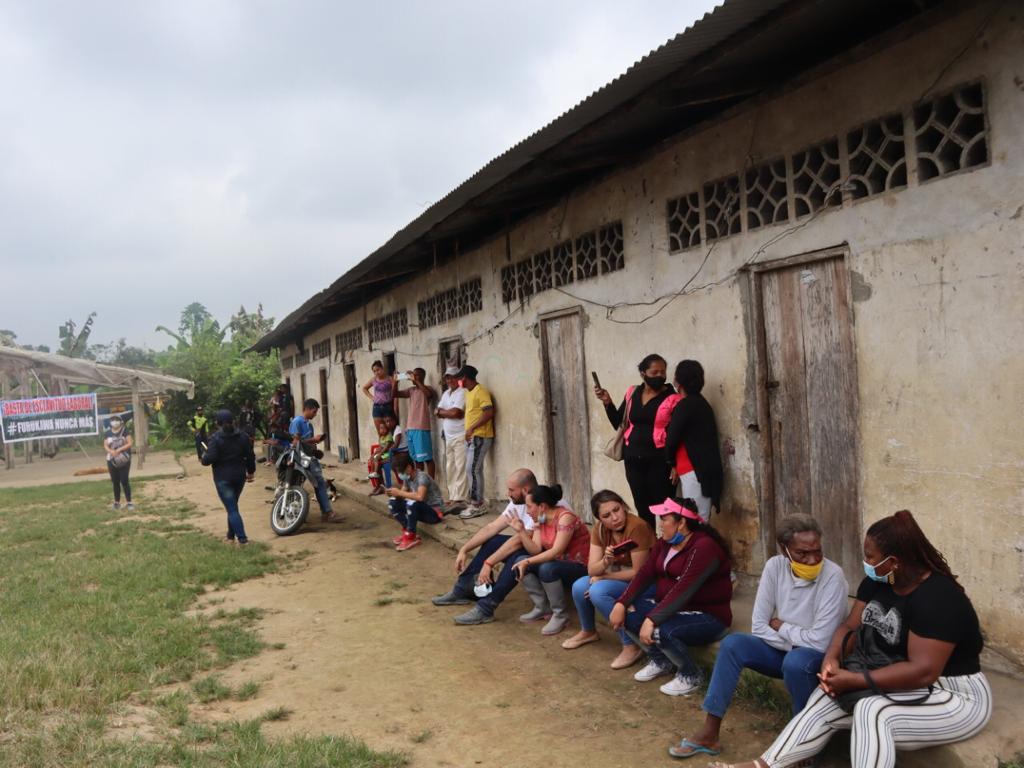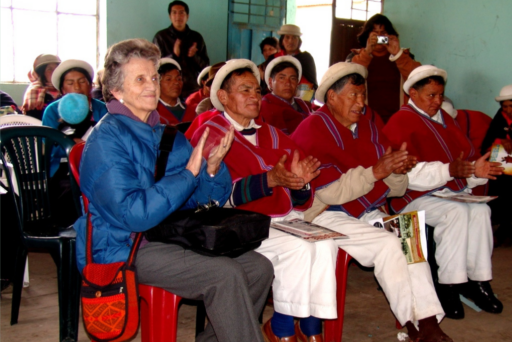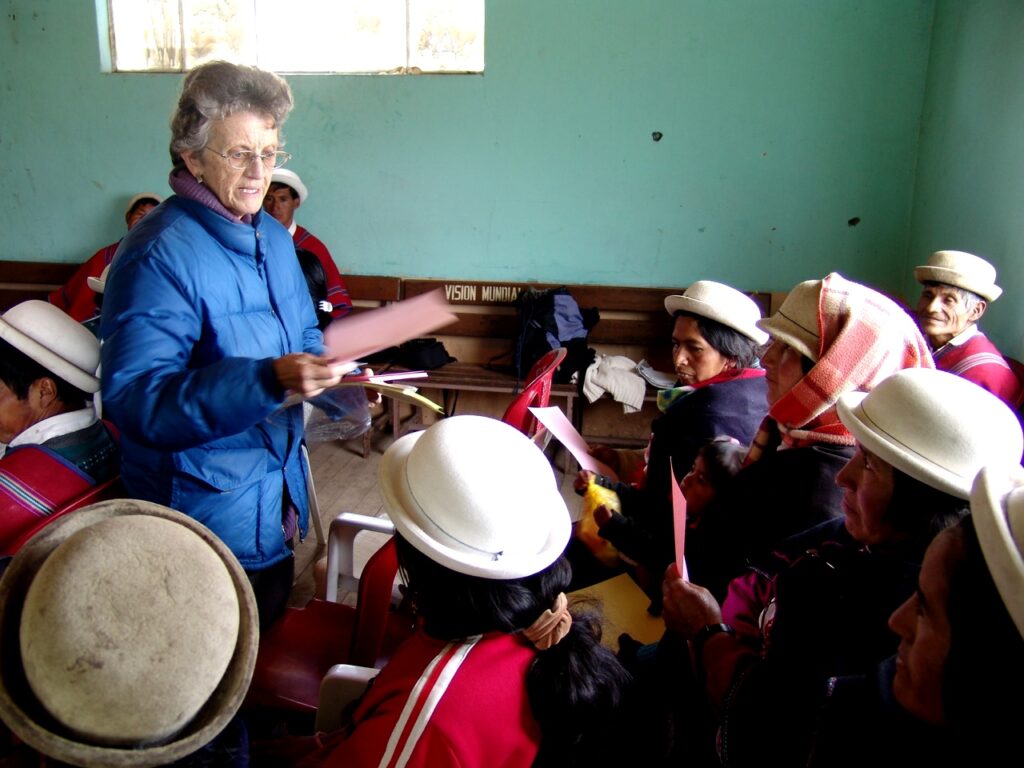As World Day of Social Justice on February 20 approaches, I’d like to tell you about the work of Sister Elsie Monge, MM, executive director of The Ecumenical Human Rights Commission (CEDHU) in Ecuador. Founded 45 years ago, this group provides legal assistance, workshops on human rights and women’s rights, community organizing, and, with the help of volunteers, learning activities for children.
The primarily Black campesinos she fights for are laborers living on farms belonging to the Furukawa Plantations Company. The company makes millions producing abaca, a robust fiber used for specialty papers, and exporting it to Japan, the Philippines, and other countries. Hundreds of families with no other options work at low wages on the farms and live in extreme poverty. Some are fourth generation campesinos and have little contact with the outside world. Many don’t have birth certificates.
According to a 2019 study by the Ministry of Economic and Social Inclusion, 80% of Furukawa families live in extreme poverty and, in US dollars, earn less than $47.90 monthly. The remaining 20% receive a monthly income of less than $84.99.

After working 10-hour days, the campesinos and their children return to crowded barracks that lack essential services such as toilets or clean water. There are no health or educational facilities, and a considerable number of people are illiterate. Those who’ve suffered an injury due to forced labor or inadequate equipment receive no assistance from the company and lack social security.
When some workers asked Furukawa for a living wage, they were fired and pressured to leave the only home they’d known. With nowhere to go, they approached Sister Elsie and CEDHU for help. In addition to bringing this appalling situation to the attention of Ecuador’s Congress and different government ministries, they organized press conferences and radio interviews with the campesinos about the violations, which elevated their situation and experiences onto the international stage.
As God’s co-creators, we are all connected as a human family and with all creation. What the campesinos grow in Ecuador makes its way to other continents and touches our lives in one way or another. Abaca is used in tea and coffee bags, vacuum bags, cigarette filter paper, sausage casing paper, and high-quality writing paper.
“People from the developed world need to reach out their hands to the developing world to empower those people to stand up for themselves and become architects of their destiny,” Sister Elsie says.
YOUR GIFT ensures that our Sisters continue advocating for
the marginalized and oppressed, traveling to needy regions, and
working to create strong, healthy communities.
Lent is a time to give thanks for our blessings, and Easter is a time to celebrate them. You are one of those blessings, and may you receive many blessings back in return!


